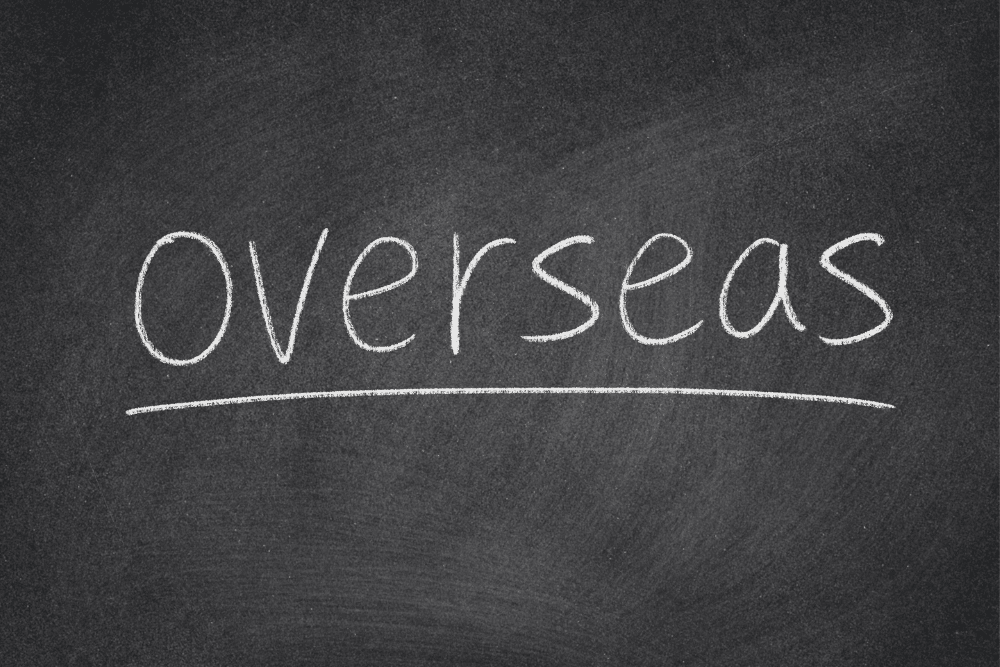
You Have Beneficiaries Overseas — How Does That Impact Planning?
By: Barry E. Haimo, Esq.
March 4, 2021
When a testator names foreign or nonresident parties as beneficiaries, distribution is typically one of the most complex estate planning tasks. This is because of the significant tax implications such an arrangement can carry.
Simply naming a foreign beneficiary automatically adds layers of compliance requirements — violations for which can lead to weighty tax issues.
For this reason, your estate planning team should be well-versed in the treatment of trusts with foreign beneficiaries at the very least. Otherwise, significant issues could arise on any inheritance you intend for loved ones overseas.
First, let’s look at three common tax issues associated with distributing assets to beneficiaries around the globe…
Common-Law vs. Civil Law Systems
Nearly every state in the U.S. bases its estate planning laws on a common law system. A great number of foreign countries, on the other hand, follow a civil law system. What does this mean?
One example: here in the U.S., your estate is taxed prior to distributing assets to your heirs and any trust you have established may bypass the probate process. Civil law, in contrast, imposes taxes on beneficiaries — not the decedent.
Common law systems are also generally more flexible than the intestate succession-type mandates of a typical civil law system. Civil law systems leave virtually no room for court interpretation or discretionary acts.
The Testator’s Domicile
As a testator, your domicile is defined as the country you treat as your permanent home or that you live in and have a substantial connection with. In other words, the place you stay in and always plan to return to.
A testator’s domicile determines their rights and the rights of their heirs. It also determines which laws are applicable. However, tax treaties between the U.S. and the foreign country where your beneficiary resides may change things.
Most of the time, these treaties are enacted to eliminate issues like double taxation and discriminatory tax treatment. When there isn’t a tax treaty, though, the potential for these issues does exist.
Special Requirements of Financial Institutions
The estate planning tools traditionally employed — wills, trusts, college savings plans, gifting options — are usually available to non-U.S. resident beneficiaries with the proper planning and execution. That said, there are exceptions.
Sometimes, financial institutions impose special requirements for foreign beneficiaries to include various registration instructions and the completion of added tax forms.
Most of the time, these additional hurdles are not insurmountable. But to ensure accuracy it’s best to have an experienced legal team in your corner.
So, what estate planning efforts can you make when you have beneficiaries overseas?
Three Best Practices as a U.S. Testator
Cross-border bequests can be tricky business considering the implications of laws, both foreign and domestic. That doesn’t mean, however, that you can’t have your final inheritance wishes met. Your best course of action can be summarized in three steps:
One, hire a firm with extensive experience with the tax laws of the country where your heirs live. Make sure they have a working knowledge of the best foreign distribution strategies there.
Two, be as flexible as you can during the planning process for your estate. Ensuring your estate planning goals are outlined is a priority, but be open to professional opinion and recommendations for better or more tax advantageous strategies they may identify. After all, it’s what you hired your planners to do!
Three, revisit your estate plan regularly. Meet with your estate planning team no less than once a year to reevaluate your plan against current tax laws and where your beneficiaries are. Make changes when you need to.
Author:
Barry E. Haimo, Esq.
Haimo Law
Strategic Planning With Purpose®
Email: barry@haimolaw.com
YouTube: http://www.youtube.com/user/haimolawtv
YOU ARE NOT OUR CLIENT UNLESS WE EXECUTE A WRITTEN AGREEMENT TO THAT EFFECT. MOREOVER, THE INFORMATION CONTAINED HEREIN IS INTENDED FOR INFORMATIONAL PURPOSES ONLY. EACH SITUATION IS HIGHLY FACT SPECIFIC AND EXCEPTIONS OFTEN EXIST TO GENERAL RULES. DO NOT RELY ON THIS INFORMATION, AS A CONSULTATION TO UNDERSTAND THE FACTS AND THE CLIENT’S NEEDS AND GOALS IS NECESSARY. ULTIMATELY WE MUST BE RETAINED TO PROVIDE LEGAL ADVICE AND REPRESENTATION. THIS INFORMATION IS PROVIDED AS A COURTESY AND, ACCORDINGLY, DOES NOT CONSTITUTE LEGAL ADVICE.